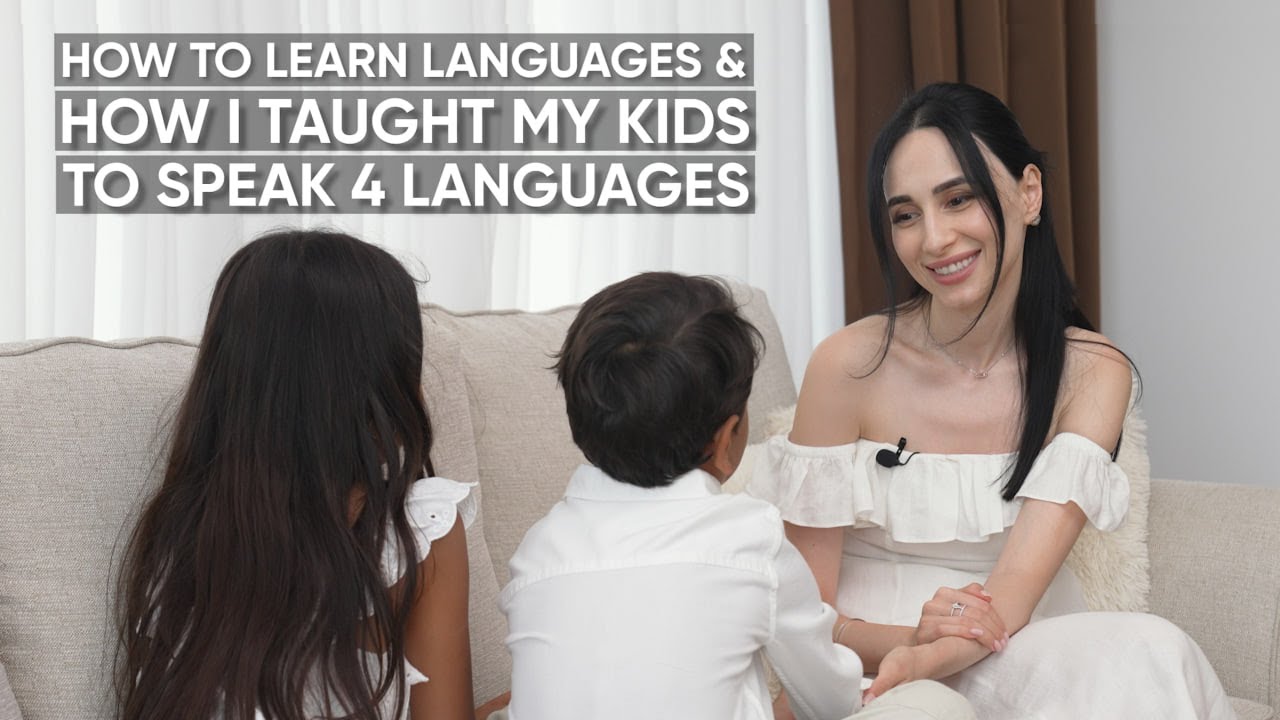
Are you ready to unlock the incredible power of multilingualism? In today's interconnected world, being able to speak multiple languages opens doors, broadens horizons, and enhances communication skills.
In this blog post, I will share my personal journey of learning not just one or two, but an impressive six languages, and how I successfully passed on this linguistic prowess to my children, who now effortlessly speak four languages at a young age. Get ready to discover effective techniques that will empower you to embark on your own multilingual adventure and create a language-rich environment for your family.
Tips on How To Learn Multiple Languages
1. Begin by selecting a language that genuinely interests you or resonates with your preferences. Choose a language associated with your favourite culture, movies, music, or any other aspect that captivates your curiosity. Starting with a language you are already inclined towards makes the learning experience significantly more enjoyable and effortless.
2. Discover your optimal learning medium. Determine whether you are a visual learner who benefits from reading books and watching videos, or an auditory learner who thrives on listening to podcasts or engaging in conversations. Tailor your language learning resources to align with your preferred learning style, maximising your progress and understanding.
3. Leverage the abundance of free online resources available. Platforms such as YouTube, podcasts, and websites offer a wealth of language learning materials at no cost. Take advantage of these resources to enhance your language skills without the need for expensive classes or private tutors. Embrace the convenience and accessibility of online tools to fuel your language journey.
4. Emphasise consistency in your language learning routine. Establish a daily habit rather than sporadic study sessions. Allocate regular but manageable time slots, such as 30 minutes each day, to maintain a steady pace and prevent burnout. Consistent exposure to the language facilitates vocabulary expansion and fosters subconscious language acquisition.
5. Prioritize personal growth and enjoyment over exam-oriented learning. If you are learning a language for personal enrichment rather than specific exams or academic requirements, focus on making the process enjoyable and fulfilling. Embrace the language learning journey as an opportunity to broaden your cultural understanding and expand your horizons, allowing curiosity and passion to guide your progress.
6. Learning a language is a continuous process without a definitive end result. It is not a marathon where you reach a point and stop. Even in your native language, you are constantly learning and expanding your vocabulary throughout your life. Therefore, language learning is an ongoing journey that cannot have a final destination. While there are proficiency standards for specific purposes, such as passing a language proficiency test, language learning for personal growth and enjoyment should be seen as an ongoing process.
7. Patience is crucial when learning a language. Progress can be slow, and it may take time before you see visible results. Just like in workouts, where you don't see immediate changes in your body, language learning requires time and effort before you start feeling comfortable and seeing significant improvement. It is important to avoid turning breaks from language learning into complete stops. While breaks are sometimes necessary, make sure to resume learning after the break to maintain your progress. Many people who take breaks from learning a language end up abandoning it entirely. So, take breaks if needed, but always return to the learning process.
8. Practice speaking the language you are learning. Speaking is essential for developing fluency and confidence. Just like watching a dance routine without actually dancing, if you don't practise speaking, you will never become proficient in the language. Overcome the fear of making mistakes or being laughed at by finding language partners who are at a similar level or slightly more advanced than you. This will create a comfortable environment for practising and having conversations.
Conclusion
In conclusion, learning multiple languages is an enriching and rewarding endeavour that opens doors to new cultures, opportunities, and connections. While it may seem daunting at first, with the right mindset and strategies, it is entirely possible to embark on this multilingual journey. Remember to set realistic goals, prioritize consistency and practice, and embrace the joy of language learning.
Whether you are a beginner or already proficient in one or more languages, the key lies in maintaining curiosity, staying dedicated, and immersing yourself in diverse linguistic experiences. So, don't hesitate to embark on the adventure of learning multiple languages, and discover a world of possibilities waiting to be explored. Happy language learning!





.svg)